I'm not denying that Kayla isn't cognitively like a 10 year old, but I never refer to her as being, "10 years old, but more like a X yr old." She's Kayla, 10 years old."
Throughout those meetings we stressed that it was still important for her to be educated with her same-age peers because she needed to learn from her same-age peer group. It would not be appropriate for her to be placed in a 1st grade classroom (and she's already repeated Kindergarten). If we want her to learn how to be age-appropriate she needs to be with same-age peers; or else she will continue to learn and act much younger than her age.
I felt even more strongly about this after reading an article from Kathie Snow's Disability is Natural website. (Scroll down to Developmental Age vs Chronological Age.)
She makes several good points, among them: "Children who do not have disabilities are all over the map in their development. A 10 year old may read like a 13 year old, play soccer like a 16 year old, and behave like an 8 year old - and he's considered 'normal'! Then there are adults without disabilities, like myself: at the age of 51, I routinely vacillate between acting like a 10-, 20-, and an 80 year old. But no one ever puts a developmental age on me. Why, then, do we do this to people with disabilities?" and "If he's six, he needs to be surrounded by other 6 year olds so he'll learn how to be six. Keeping him with 4 year olds will only encourage him to remain like a 4 year old."
I'm not saying that a child of one age can't play and be around kids who are older or younger; it's good to have a variety of age groups playing together and that plays out in neighborhoods everywhere- including my own. There is a 5th grader a few houses down and he will play with both Kayla and Lucas when they are all outside. Does anyone say he shouldn't be playing with Lucas because Lucas is in Kindergarten? The girl across the street is in 2nd grade and she also plays with Kayla and Lucas. But to put a child with a disability in a class of students a couple of grades/years younger so they are spending the majority of their time with that younger age-set? That is a different story.
I am aware that Kayla does prefer some things that are younger than her age, but I don't encourage it. For example, she would watch the preschool show Sophia the First if I let her. But I don't. Because it is made for preschoolers. There are probably some cartons and animated shows that 10 year olds do watch, but those are not preschool shows. If Kayla is going to be around her age-group, she needs to learn how to be a 10 year old and communicate about things 10 year olds communicate about - and Sophia the First is not one of them. Frozen, yes; Sophia, no.
I've noticed a theme in a lot of articles highlighting an adult with a disability; and that theme is the author seems to make it a point to bring attention to something the person with a disability is doing, watching, wearing, or saying, that is more on the level of something a child would be doing. One article in particular that I remember was about an adult female with Down syndrome. It described her as wearing her favorite Tinkerbell sweatshirt and coloring in a Tinkerbell coloring book. My take on that part of the article was the author was painting this picture of this woman as much younger than her age. Did that matter for the article? Did it contribute? I don't think it did. I don't think it was necessary to include that information at all. In fact, so what if she was wearing a Tinkerbell sweatshirt? They make Disney clothing in adult sizes. There are adults without disabilities who wear Tinkerbell clothing. I have seen cars with Tinkerbell stickers/logos on the back windshield.
And then there are the times when there is an event advertised for families who have children with disabilities, and the activities are geared towards younger children - yet people bring adults with disabilities out to these events as well. Just because the event advertises for people with disabilities doesn't mean it's age-appropriate for adults with disabilities as well.
There was an Easter event planned between 2 organizations. I was surprised at the number of eggs they were needing for this event and asked if they really thought that many kids would be there. The person from one organization had told the person from the other organization that she expected a lot of adults would be coming out for this Easter Egg hunt. I admit to being surprised. Really? Adults? For an Easter Egg Hunt? Just because they have a disability doesn't mean they have to do activities that are geared towards children. Just because they have a disability doesn't mean they need to be treated like children and brought to events and activities that are obviously meant for children.
The disability community is vast and encompasses all ranges of disability and ages. But events do not have to be all-inclusive and just throw everyone with a disability into an event when all the activities are arranged for the younger age group. It is fine to have an all-ages event ... but then the activities should reflect something age-appropriate for the adults as well.
Or if an organization is having a holiday event where the activities are traditionally meant for kids; they could have the older age group be volunteers and help out with the event and assist the younger kids with their activities. Let them be older teenagers or adults, let them be their age. Don't keep having them do activities that are meant for children. Don't keep treating them much younger than they are.
When Kayla is in her 20s I can not see myself bringing her to an Easter Egg hunt, or bringing her to see Santa. It just isn't age-appropriate.



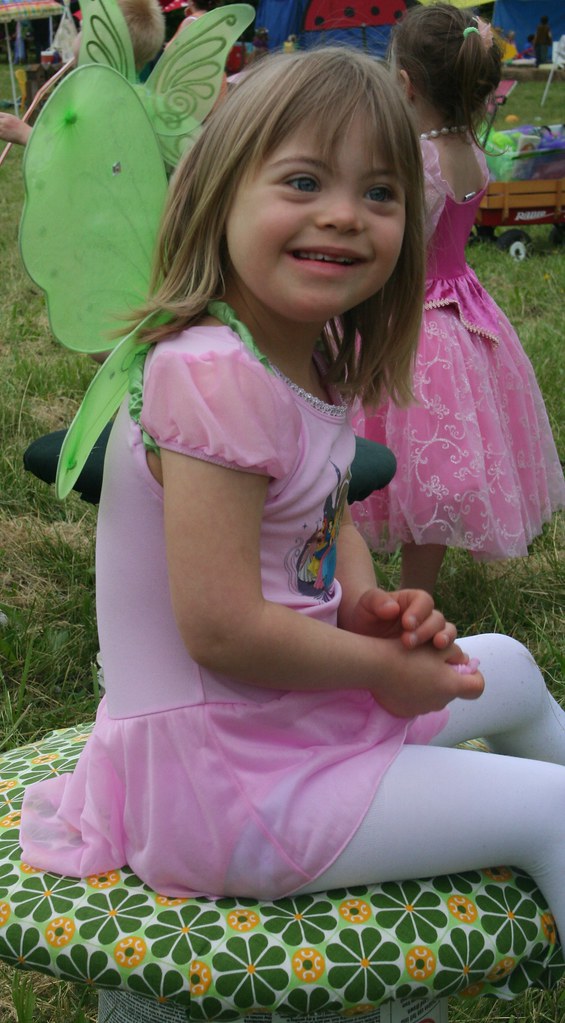

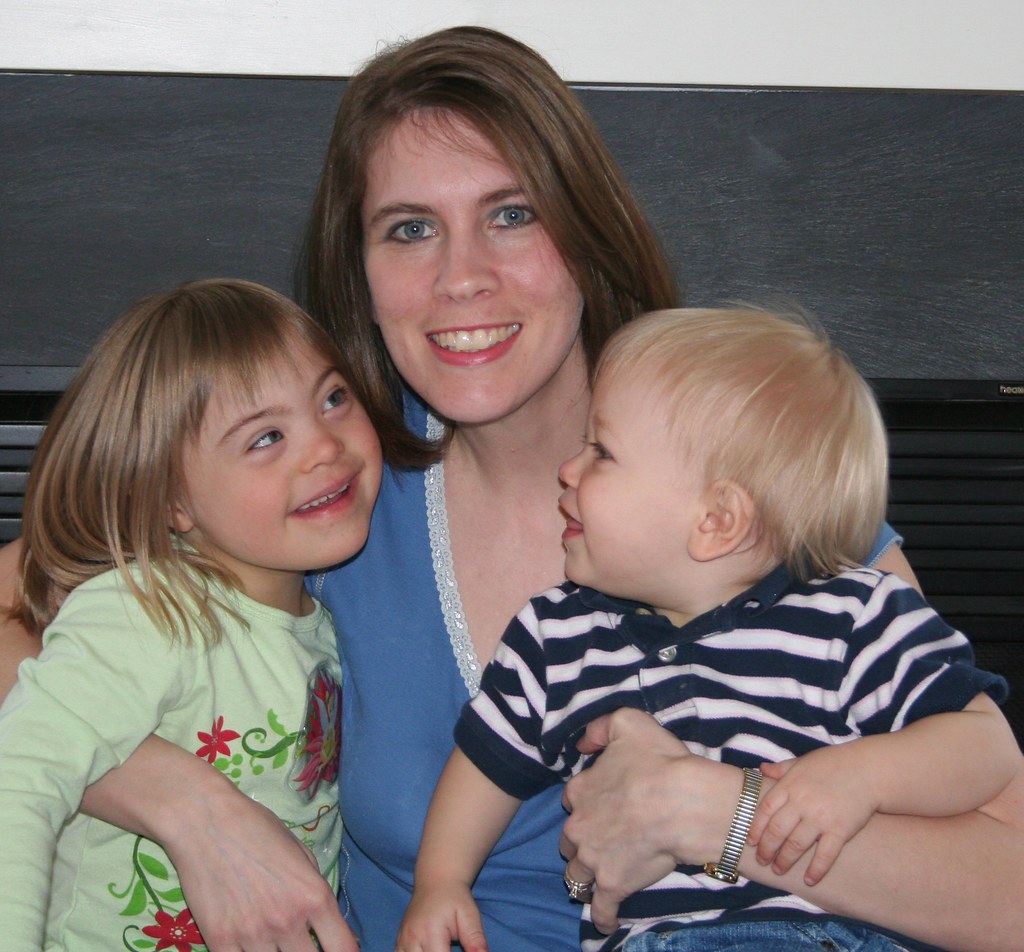
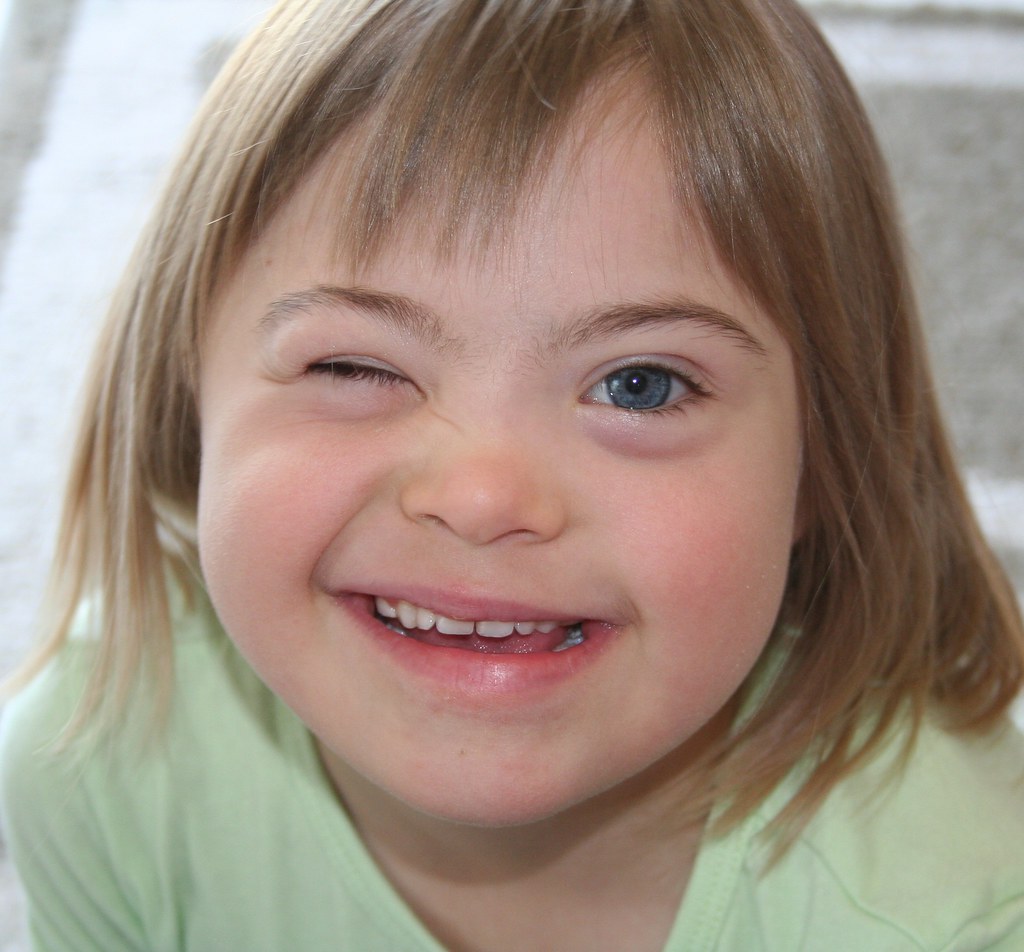
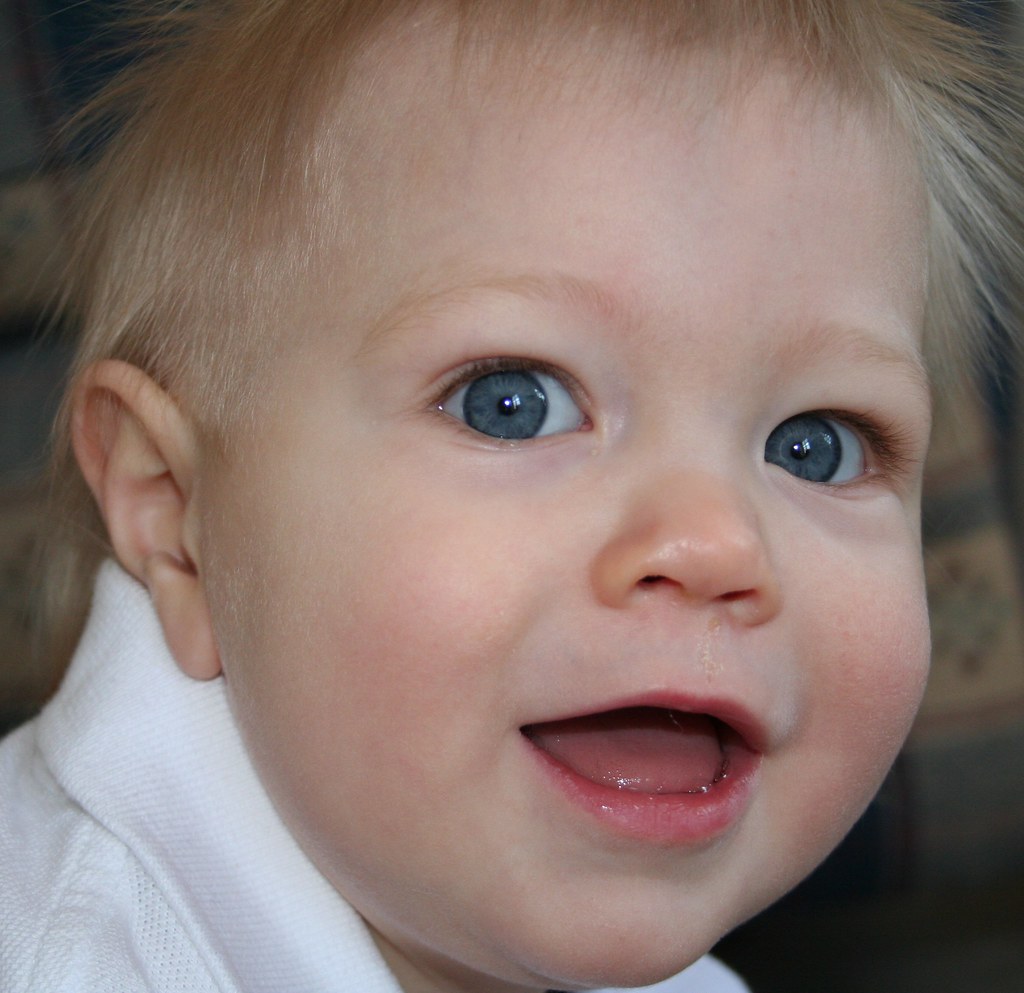
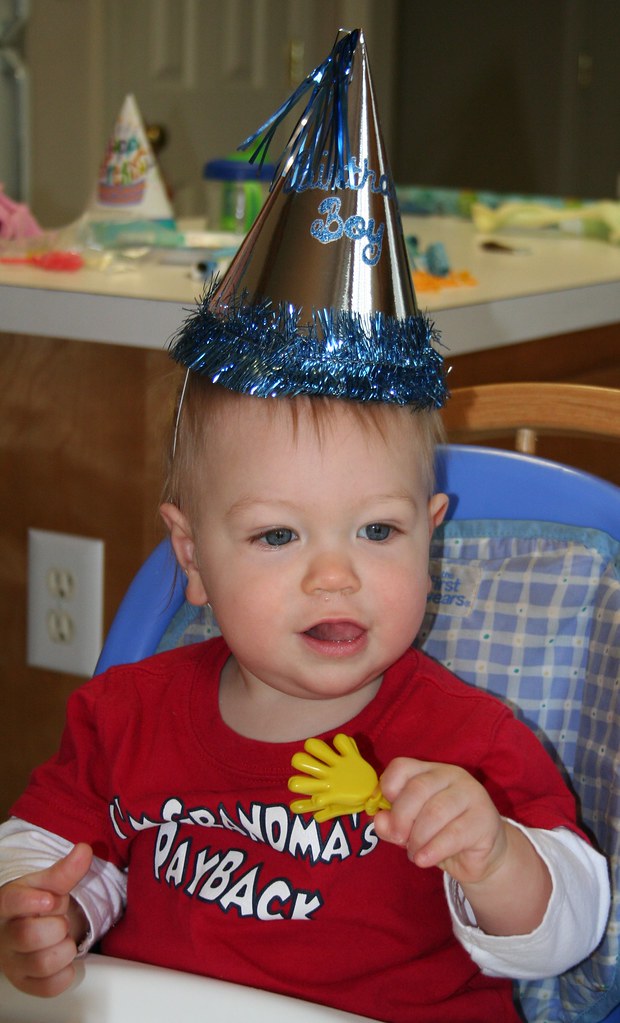
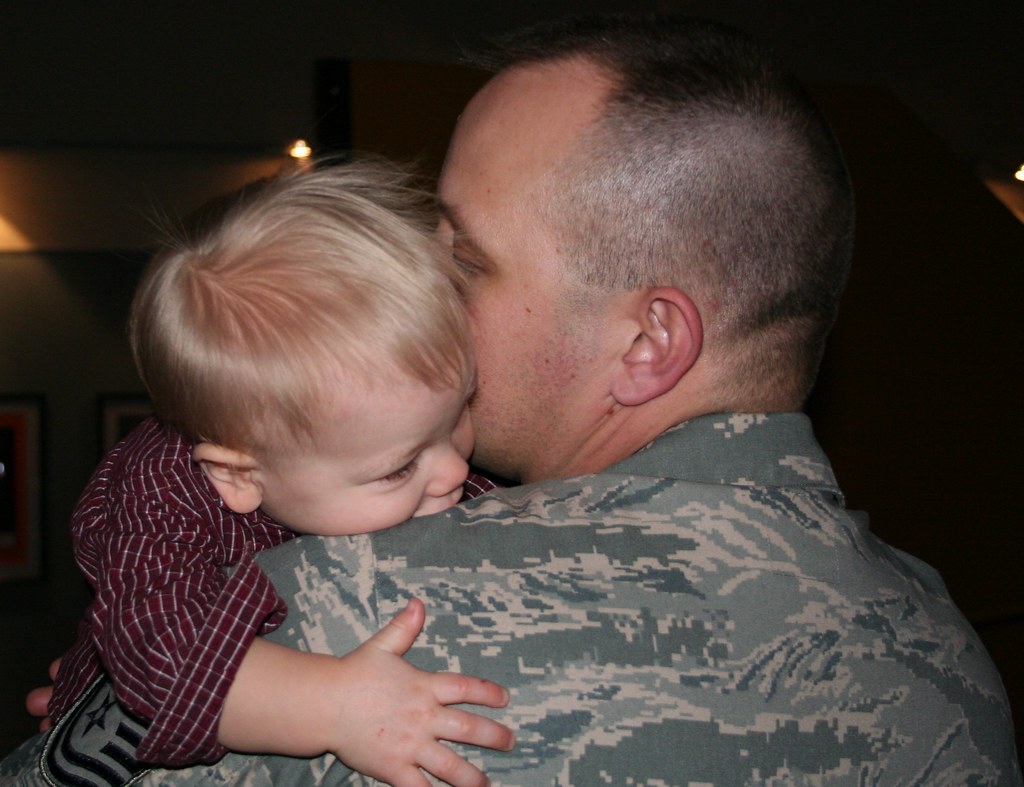

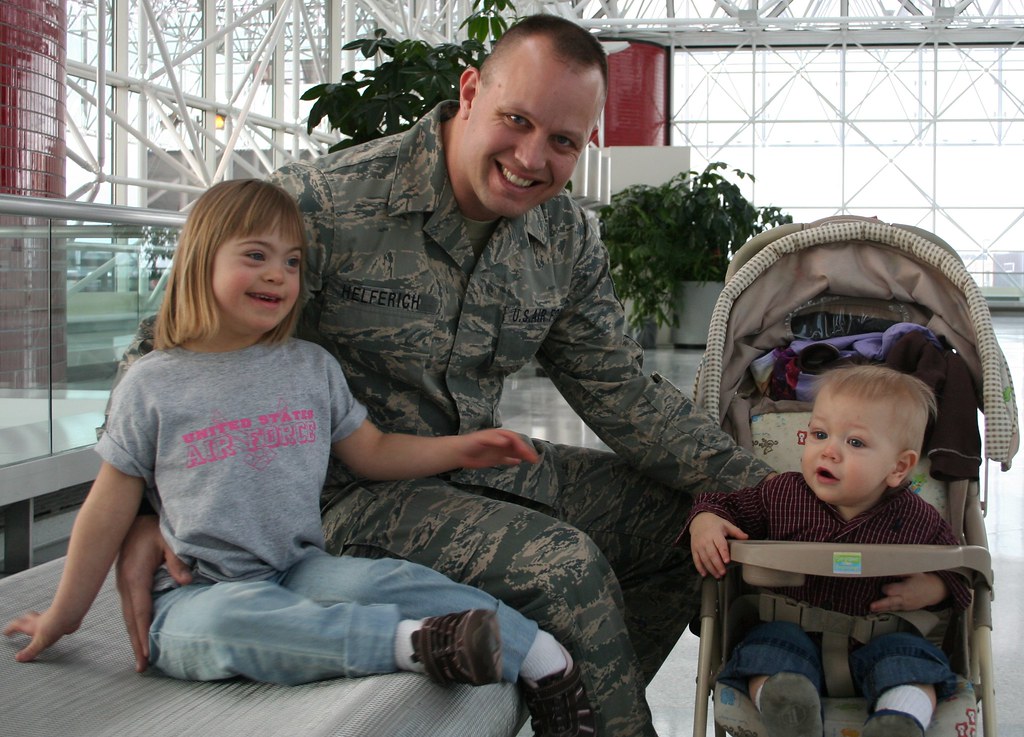
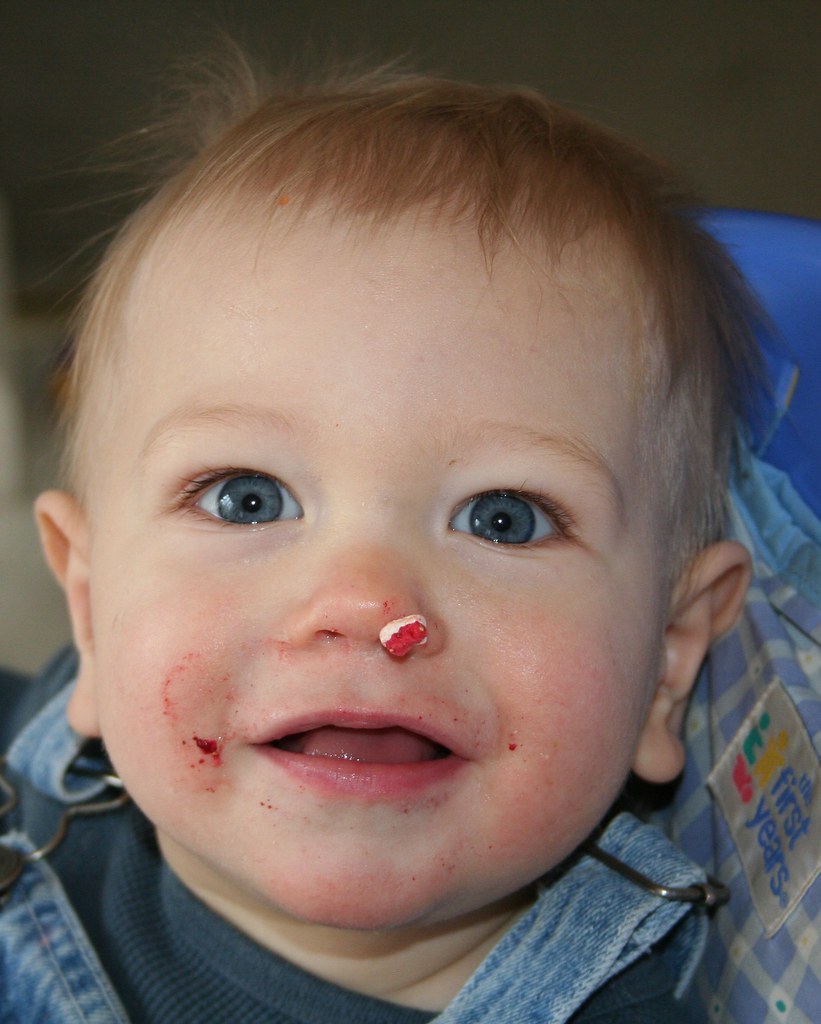
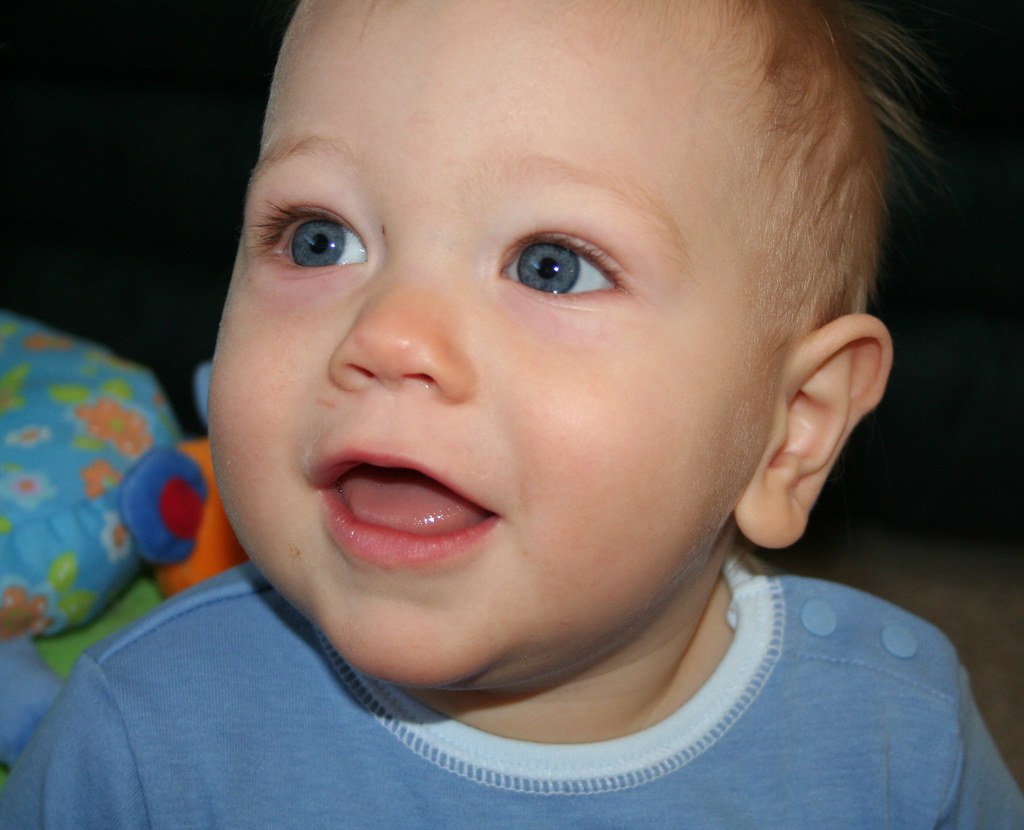
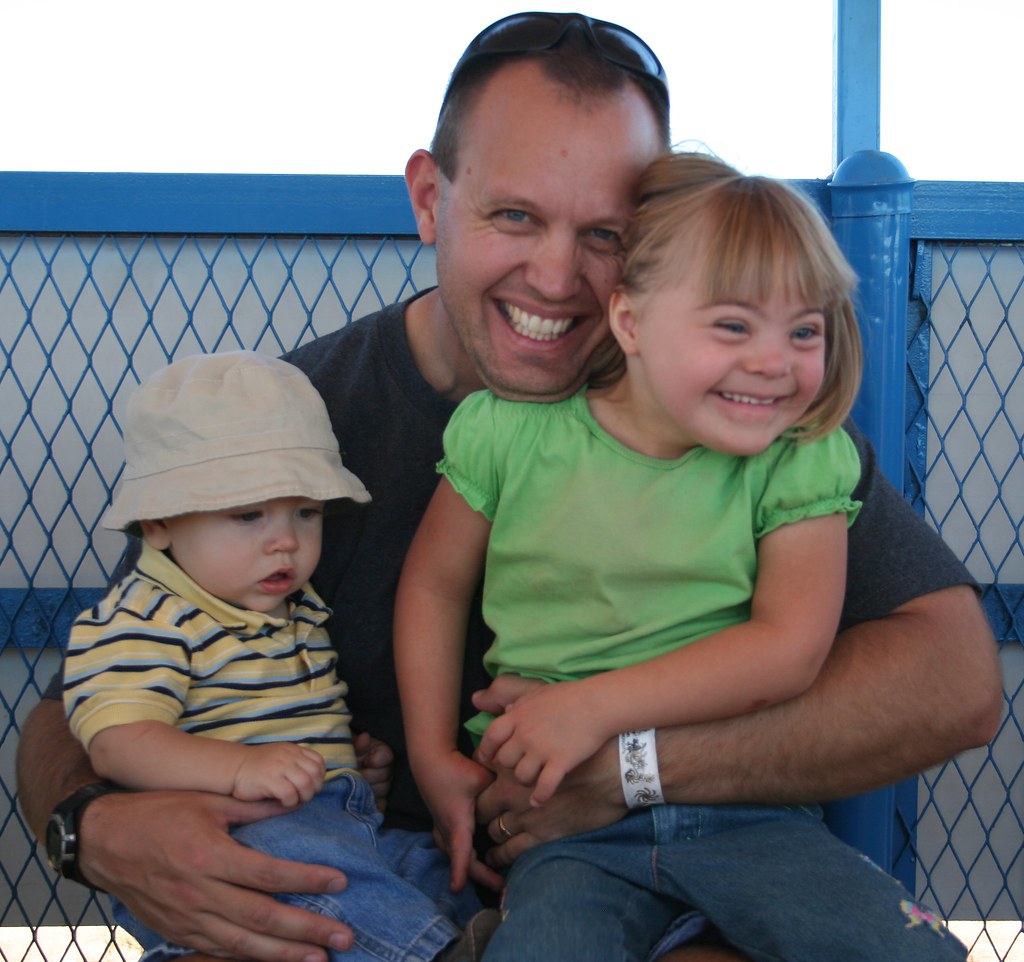
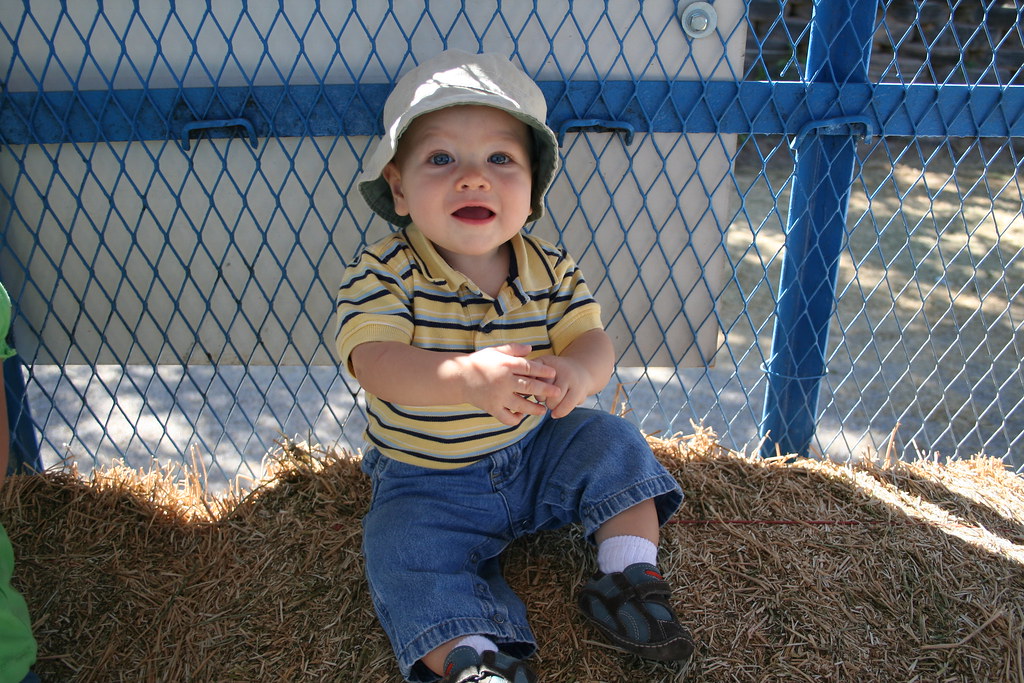
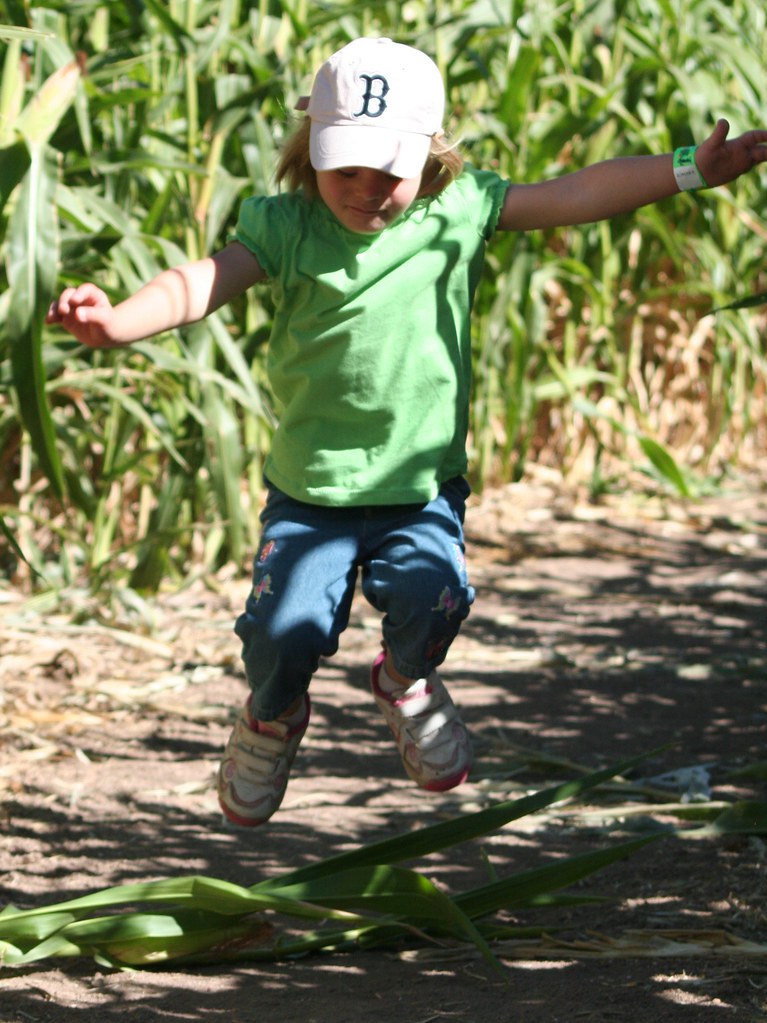
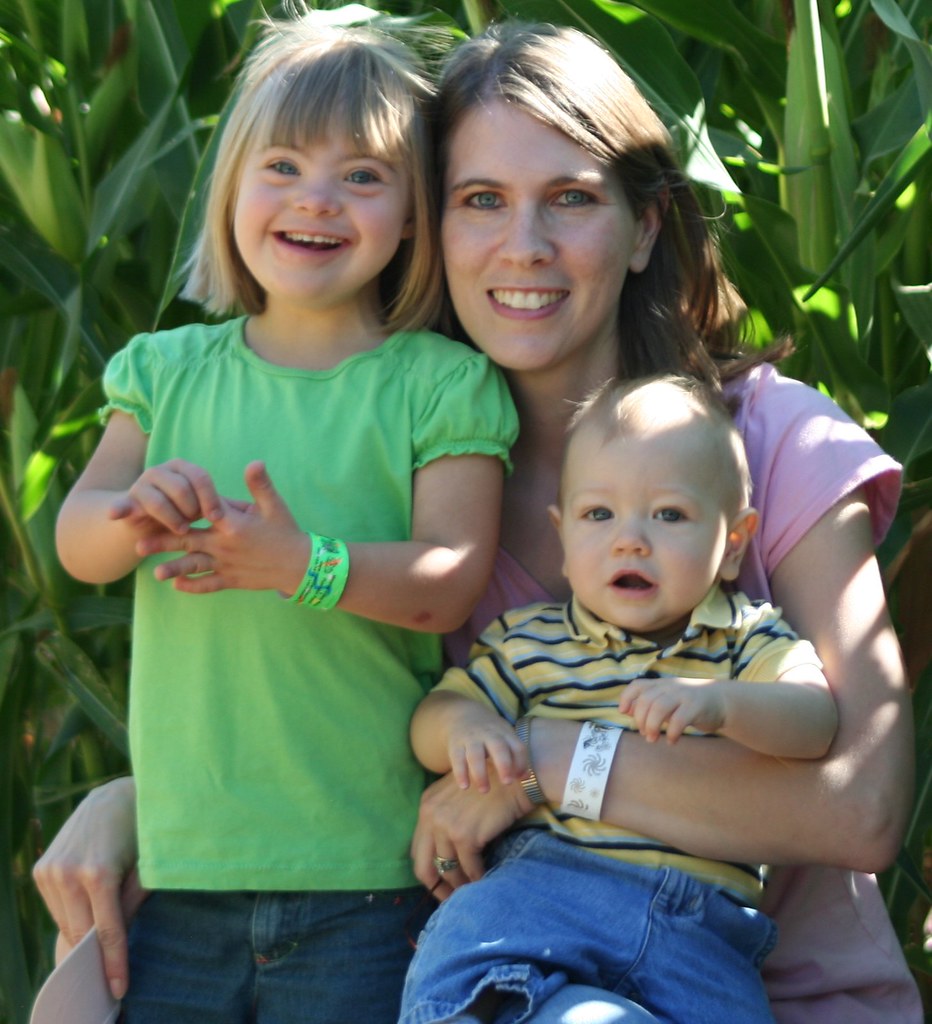
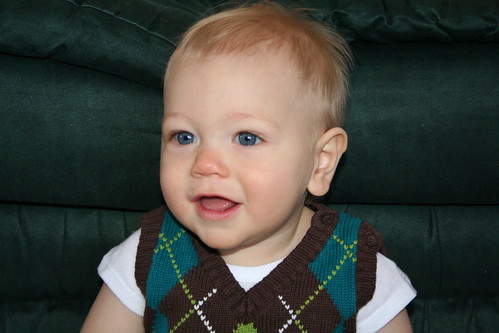
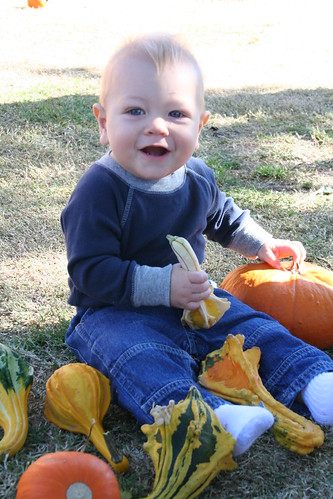
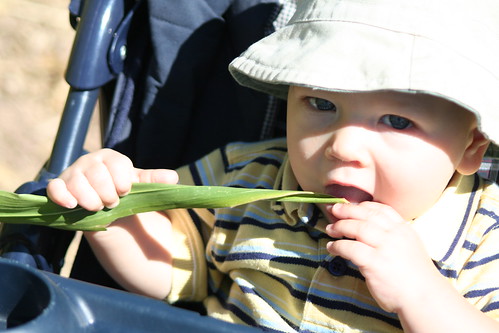
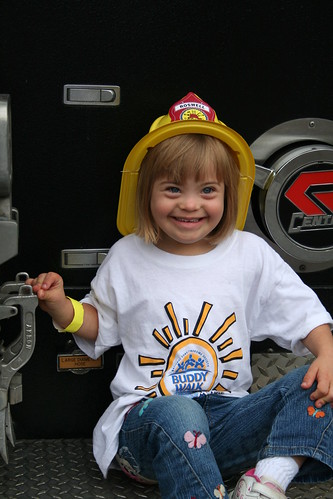
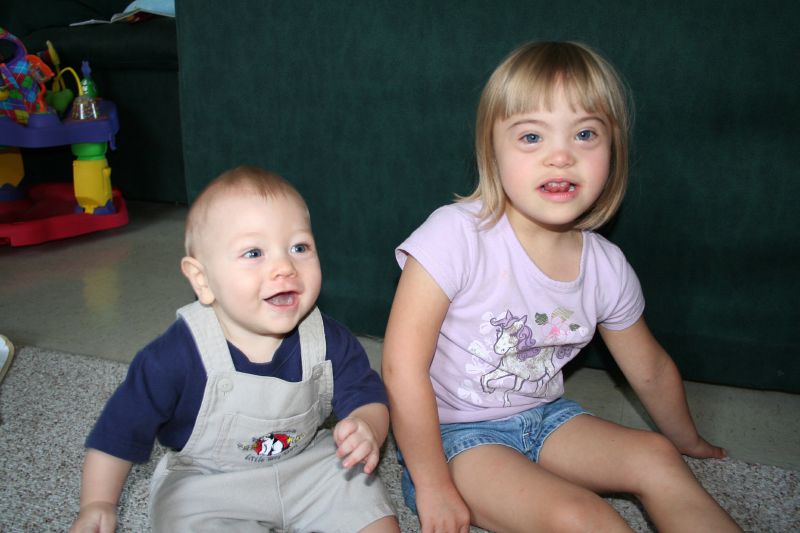
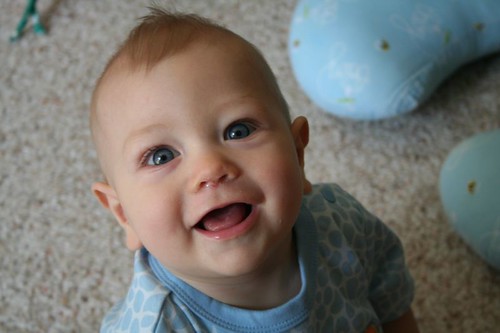
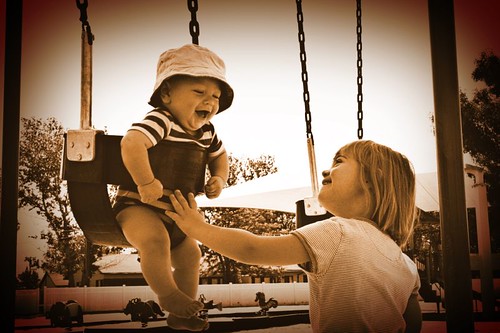
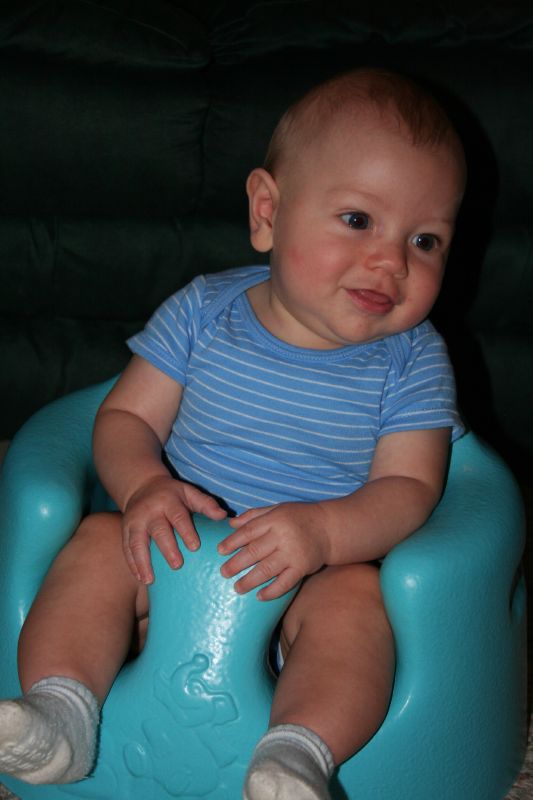
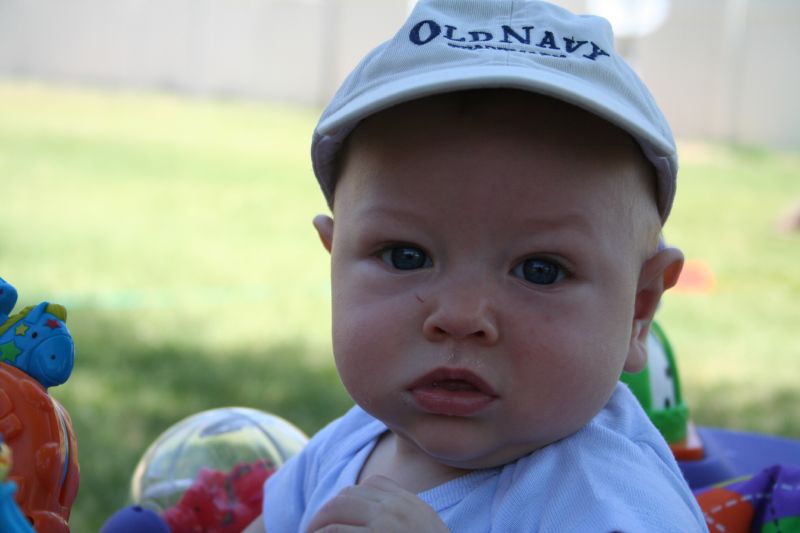
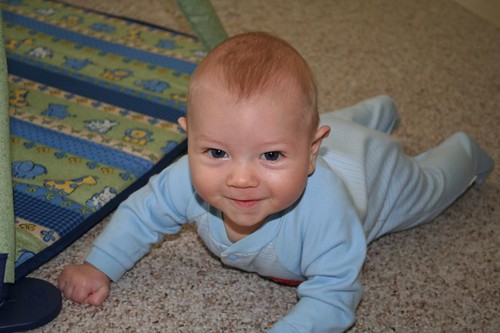
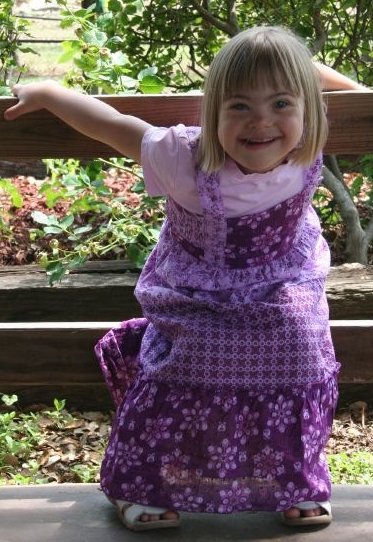
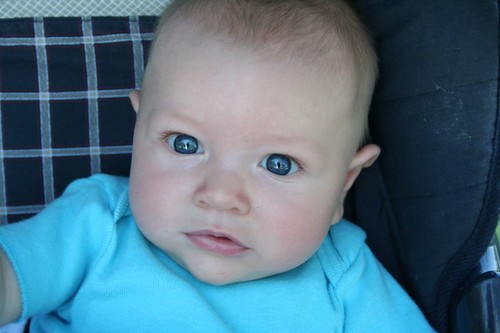
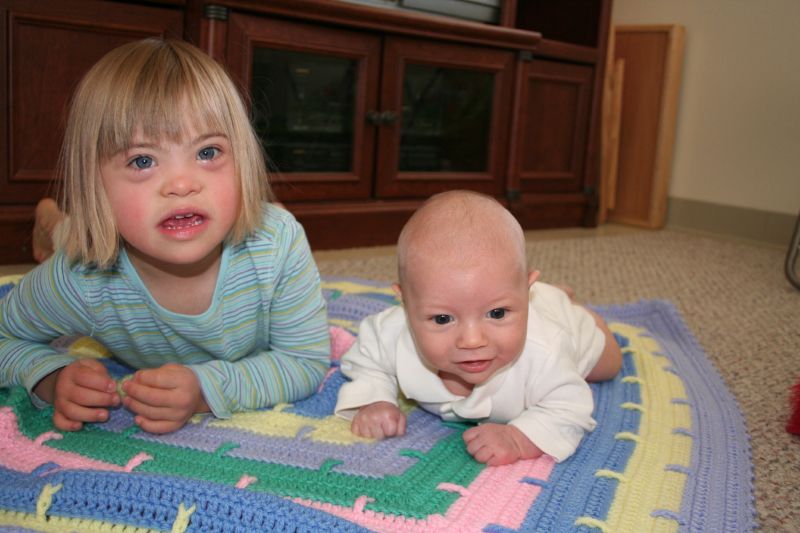
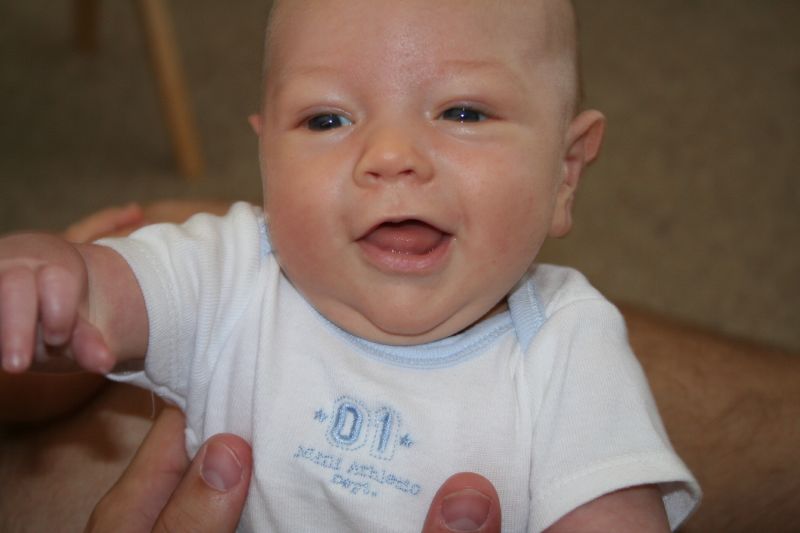
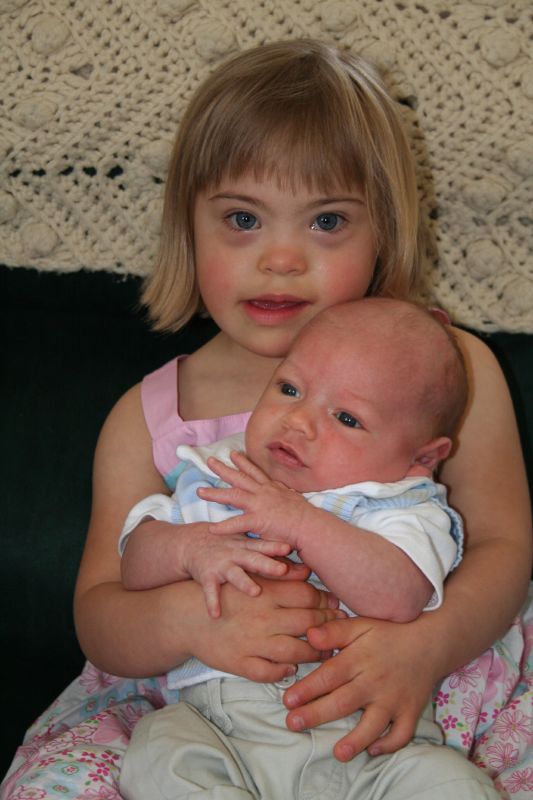
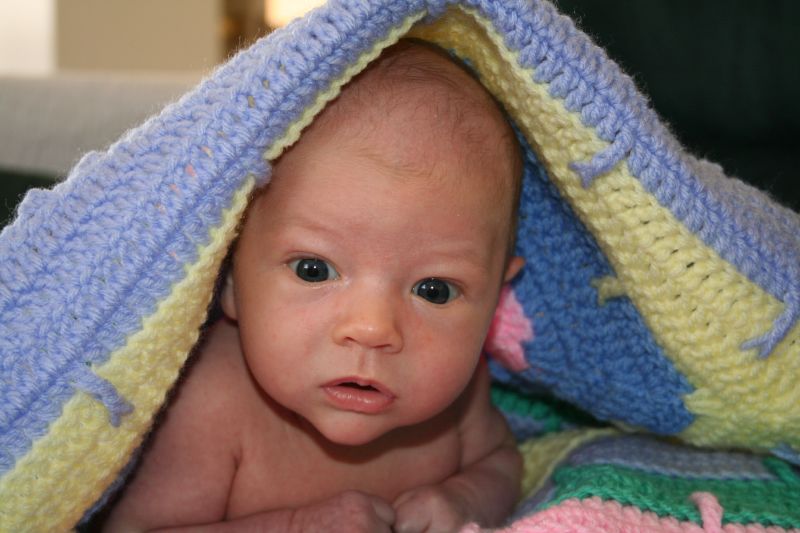
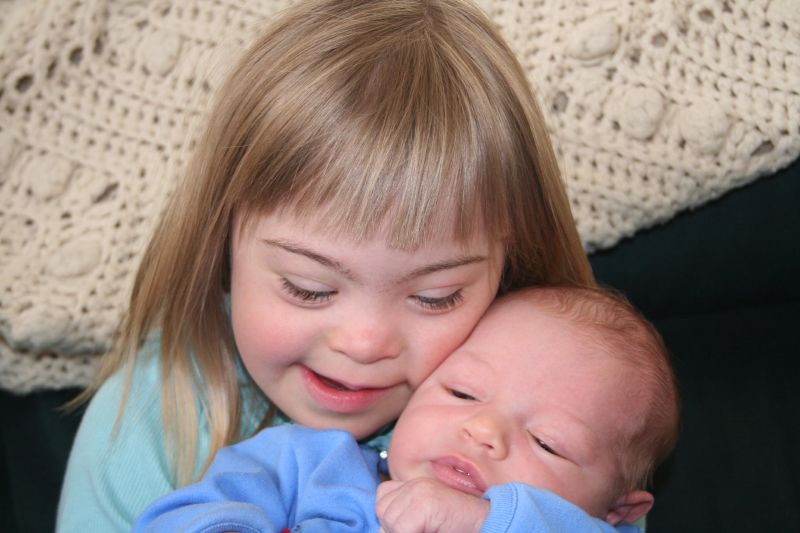
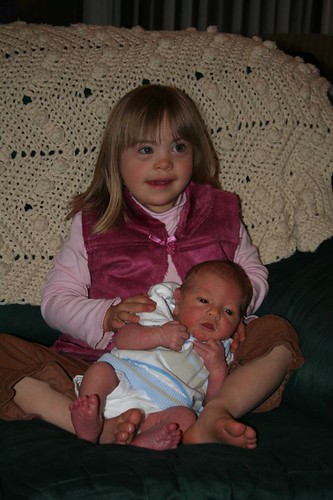
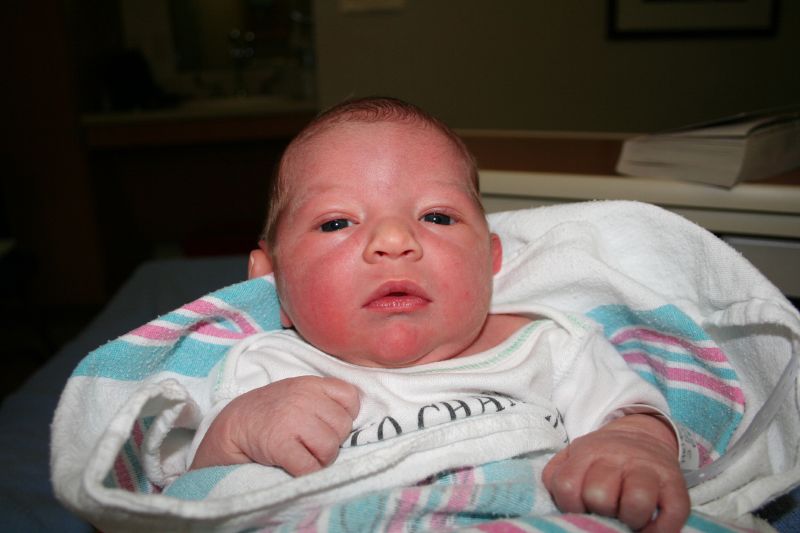
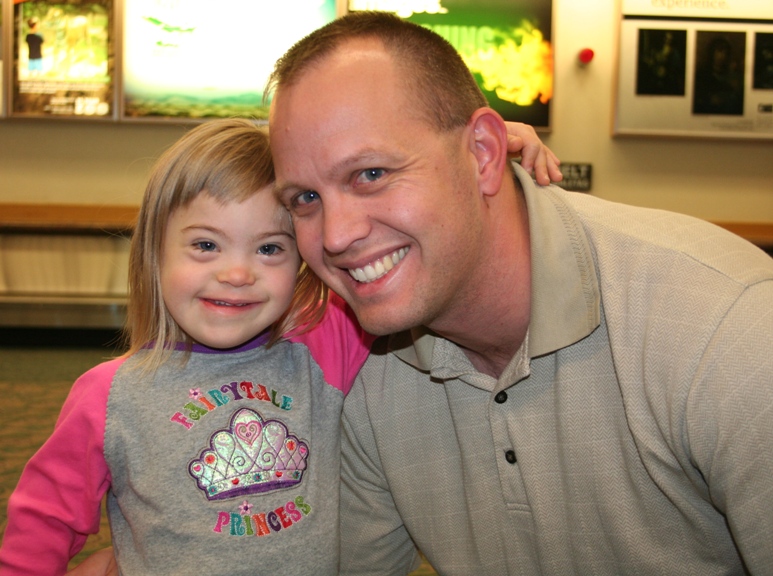
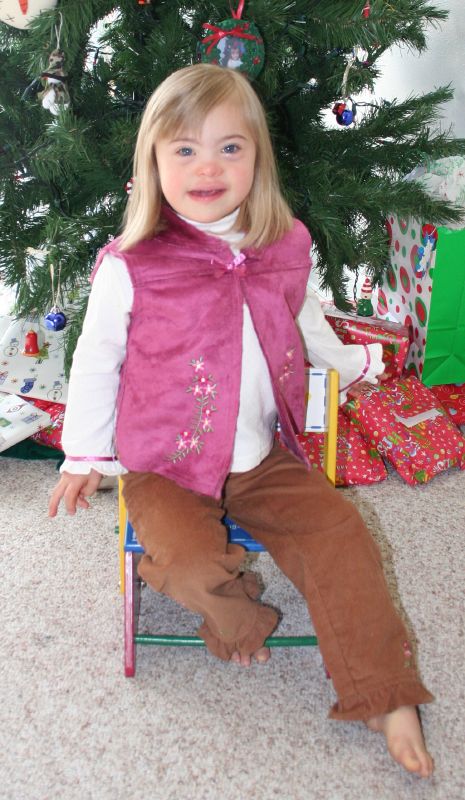
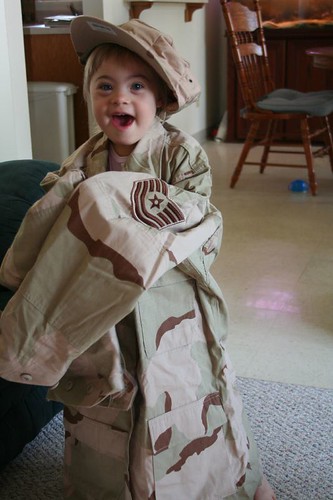
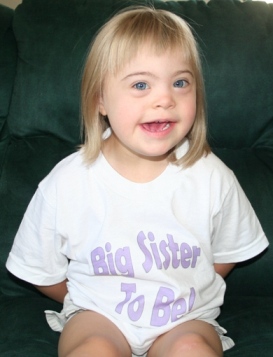
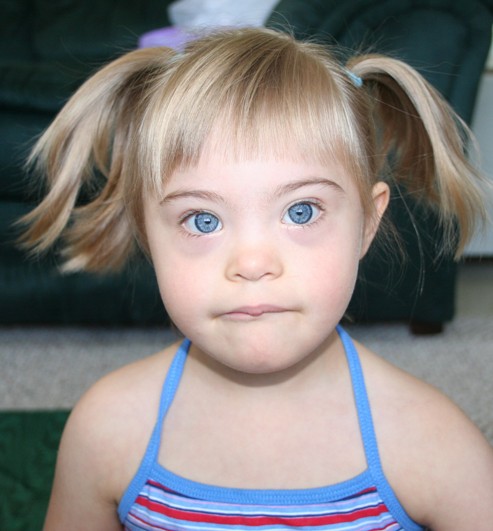
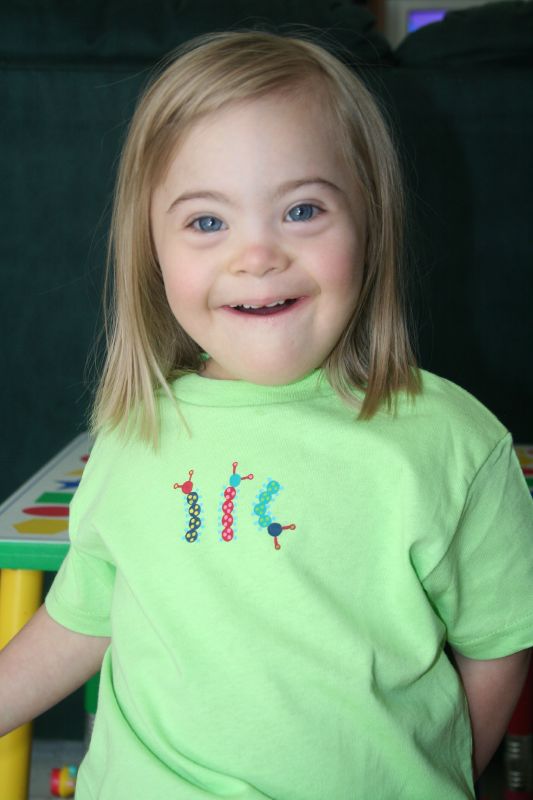
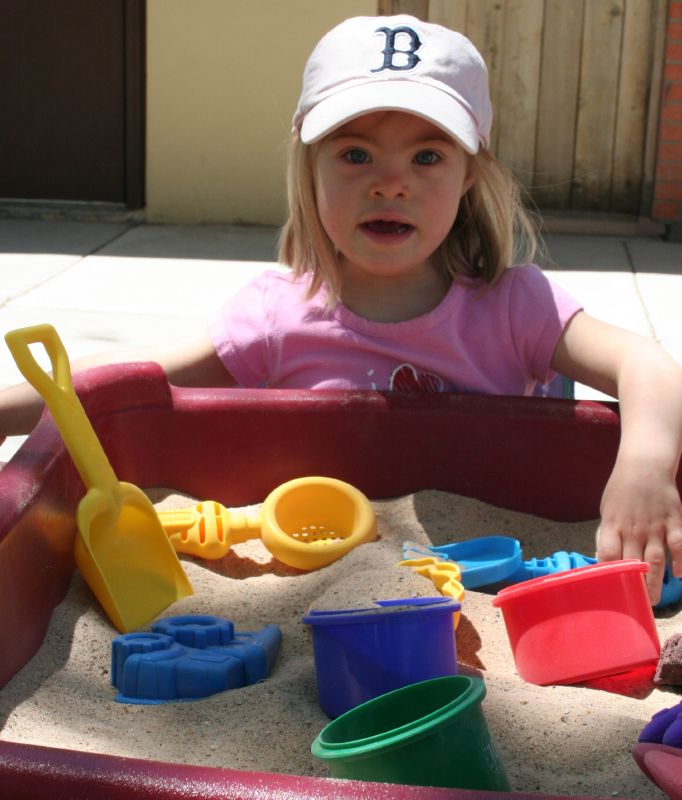
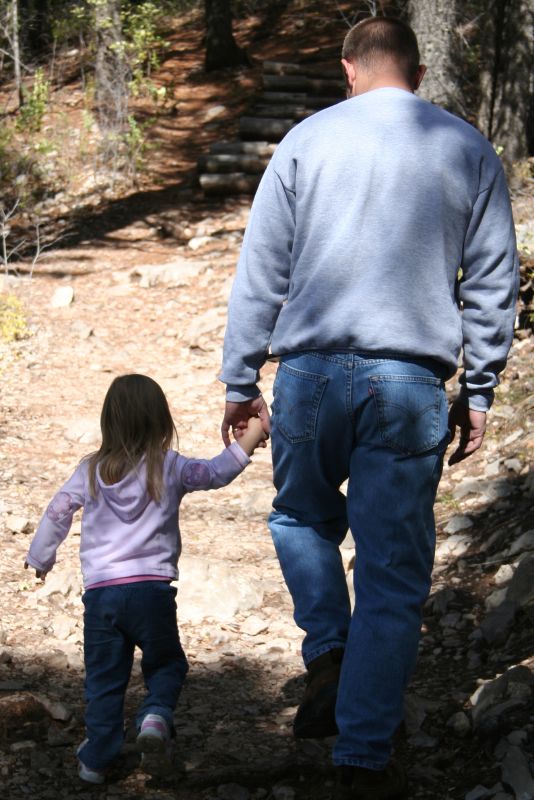
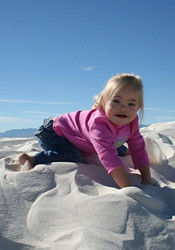
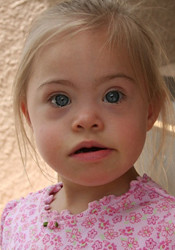
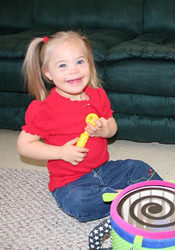



13 comments:
Great post! I completely agree with what you've written here. The mentality is to talk and treat people with disabilities like children. I don't like that. If you're 20 years old, then you're 20 years old. The more we allow this kind of thinking to continue, the more patronizing people will be towards our children. I want Owen to have a job and live independently. He can't do that if I treat him like he's perpetually 8 nor can he do it if the community at large treats him that way too.
I agree. But I also think it gets really wrapped up in people being uncomfortable with disability and sexuality. It's much easier to deal with people with disabilities as childlike than to try to figure out how to really let them have complete adult lives. Easter egg hunt: fun outing. Bar: not so much. You know?
We have a friend at church with Down Syndrome. K is in her mid 20s and we treat her like a 20-something-year-old, and not a child, even though in some ways she is still like one. It never occurred to my husband or me to treat K differently. I recall one time, several months ago, where a woman around K's parents' age came up to K and started talking to her like she was a toddler. K came up to me, hugged me tight, and hid behind me as if to get away from the woman. I was disgusted. My husband and I never talked baby talk to our children, yet here was someone treating a grown woman like a baby. Why?
On a side note, as a child, I preferred playing with kids a little younger than I am. My soon to be six year old is the same way (he has sensory processing disorder and in speech and social, is behind in his age group). T will repeat kindergarten this coming year, but I did not give it much thought about him being around kids younger than himself (odd, since I thought about every little single thing that would be good or bad about him repeating, including his placement in a different building and classroom, if he'd use a bathroom he's not accustomed to, et cetera).
Great post! Thank you!
On the other hand... If the children's activity is what THEY want to do (rather than being forced upon them as the default option) then maybe the onus is on us to accept that different people may have different interests and tastes and desires, and not everyone has to fit into the same box and like the same things at the same ages.
I agree with much of what you said, but why force an adult with a disability to do an activity that he doesn't enjoy, just because it's age appropriate? If they would really enjoy an Easter egg hunt, why is that bad? Is it age appropriate for a typical 20 year old? No, but so what? If it's a lot of fun, and the person really enjoys it, why is that a bad thing?
You point out that "typical" kids have skills and interests all over the map. So do people with disabilities, and those interests may be at an age that is younger than their chronological age. Yes, it's important to teach them skills to interact and learn with their same age peers, but don't forget that their interests may be those of younger kids, and there isn't anything wrong with that.
This is perfect. I am in SO and at a track meet they have an athlete village. Most of the athletes were adults, but they had activities ment for babies. I refused to participate, I caved when they had a board game both because I love borad games. I think if I participate next year I will bring my Risk set,
Be careful wanting K to participate in age-appropriate activities when it comes to prom! & drinking & passing out & ... etc... but seriously ... Be careful what you are hooking on to. Jessie has close friends (so-called typical? HA! an opera singer and a very gifted writer and photographer), who, in their late teens & early 20s, binge watched Arthur regularly. I had a hard time explaining this to one of Jessie's teachers ... who insisted on age-appopriate TV, and wouldn't belief me that R&R were so-called typical young women. The co-artistic director of the company that Jessie dances with LOVES the Muppets, so Jessie has regular muppet dates with her. The point, as we and our children age, I think, is to find common interests and to start making games and art activities that are INCLUSIVE i.e., all ages and abilities... not just "babyish."
I completely agree! I have a daughter with DS that will turn 20 next month. People talk down to her and it makes me crazy. We try desperately to keep her age appropriate and it is so difficult. The parents of her friends DO NOT do the same. This can be quite a task in a world that thinks of all individuals with disabilities are children forever.
At every age, for every person, the most "appropriate" action or event is what is personal to that person. For example, Marcus is 23 and I did take him to see Santa Claus, because *he* wanted to stop and say hi. Santa offered for Marcus to sit on his lap - as is the custom - and Marcus replied, "No. That's for kids." Marcus understands what is "for kids" and he also knows what he wants - to talk to Santa at Christmas time. It's a balance I learned over the years, by letting Marcus teach me. It is a tricky subject, especially from the outside, and I appreciate your willingness to broach the subject both with teachers and the world :) Great words, as always, keep on.
There is a young woman at church who is chronologically 24 but cognitively 18mo-2 years old. Her cognitive development stopped.
She dresses fashionably for her age group and her caregiver makes sure her hair and jewelry are stylish...but age appropriate activities would be frustrating and confusing for her.
We have several adults with Down syndrome in our neighborhood (30's and 40's range) and they still believe in Santa and LOVE Christmas and the magic that is felt with child innocence. And they look forward to seeing Santa every year. What are your plans with Kayla? Do you plan on telling her one day that Santa and the Easter Bunny aren't real? I've always just planned on keeping up the magic as long as my children believe even if that meant forever for Morgan.
There are a lot of people who are directly dealing with those who are adults chronologically that so enjoy things like Easter Egg hunts. That you don't believe Kaya will do this as an adult, but will be a helper is fine, but there are some who are at the adult stage and they are still very much enjoying child activities. To go to something like this and find the person age barred is a slap in the face. Fine to encourage your view, but don't shut out those who don't follow it. Enough doors are shut for them.
Post a Comment